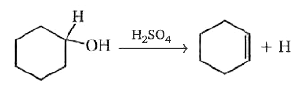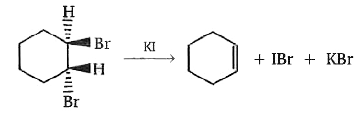Which of the following reaction ends in finite time ?
zero order
1st order
2nd order
3rd order
The correct Answer is:A
To determine which of the following reactions ends in finite time, we need to analyze the different types of reactions provided: zero-order, first-order, second-order, and third-order reactions.
1. Understanding Reaction Orders:
- Zero-Order Reaction: The rate of reaction is constant and does not depend on the concentration of the reactant. The rate law can be expressed as:
Rate=k
- First-Order Reaction: The rate of reaction is directly proportional to the concentration of one reactant. The rate law is:
Rate=k(A)
- Second-Order Reaction: The rate of reaction depends on the square of the concentration of one reactant or the product of the concentrations of two reactants. The rate law can be:
Rate=k(A)2orRate=k(A)(B)
- Third-Order Reaction: The rate of reaction depends on the concentration of three reactants or the cube of one reactant. The rate law can be:
Rate=k(A)3orRate=k(A)2(B)orRate=k(A)(B)(C)
2. Deriving the Integrated Rate Laws:
- Zero-Order Reaction:
(A)=(A0)−kt
This equation shows that the concentration of A decreases linearly with time. When (A) reaches zero, the reaction stops, which occurs in a finite time.
- First-Order Reaction:
(A)=(A0)e−kt
The concentration of A approaches zero asymptotically as time increases, meaning it never actually reaches zero in finite time.
- Second-Order Reaction:
1(A)=1(A0)+kt
Similar to the first-order reaction, the concentration of A approaches zero but never actually reaches it in finite time.
- Third-Order Reaction:
1(A)2=1(A0)2+kt
Again, the concentration approaches zero but does not reach it in finite time.
3. Conclusion:
- Among the four types of reactions analyzed, only the zero-order reaction reaches zero concentration in a finite amount of time. Therefore, the correct answer is that the zero-order reaction ends in finite time.
Final Answer:
The zero-order reaction is the only reaction that ends in finite time.
- Zero-Order Reaction: The rate of reaction is constant and does not depend on the concentration of the reactant. The rate law can be expressed as:
Rate=k
- First-Order Reaction: The rate of reaction is directly proportional to the concentration of one reactant. The rate law is:
Rate=k(A)
- Second-Order Reaction: The rate of reaction depends on the square of the concentration of one reactant or the product of the concentrations of two reactants. The rate law can be:
Rate=k(A)2orRate=k(A)(B)
- Third-Order Reaction: The rate of reaction depends on the concentration of three reactants or the cube of one reactant. The rate law can be:
Rate=k(A)3orRate=k(A)2(B)orRate=k(A)(B)(C)
- Zero-Order Reaction:
(A)=(A0)−kt
This equation shows that the concentration of A decreases linearly with time. When (A) reaches zero, the reaction stops, which occurs in a finite time.
- First-Order Reaction:
(A)=(A0)e−kt
The concentration of A approaches zero asymptotically as time increases, meaning it never actually reaches zero in finite time.
1(A)=1(A0)+kt
Similar to the first-order reaction, the concentration of A approaches zero but never actually reaches it in finite time.
1(A)2=1(A0)2+kt
Again, the concentration approaches zero but does not reach it in finite time.
- Among the four types of reactions analyzed, only the zero-order reaction reaches zero concentration in a finite amount of time. Therefore, the correct answer is that the zero-order reaction ends in finite time.
The zero-order reaction is the only reaction that ends in finite time.
Topper's Solved these Questions
- CHEMICAL KINETICS Book:VMC MODULES ENGLISHChapter:CHEMICAL KINETICS Exercise:Level-2
Explore 50 Videos
- CHEMICAL KINETICS Book:VMC MODULES ENGLISHChapter:CHEMICAL KINETICS Exercise:Level-2 ( Numerical Value Type for JEE Main )
Explore 15 Videos
- CHEMICAL KINETICS Book:VMC MODULES ENGLISHChapter:CHEMICAL KINETICS Exercise:Level-0 (Long Answer Type )
Explore 6 Videos
- CHEMICAL EQUILIBRIUMBook:VMC MODULES ENGLISHChapter:CHEMICAL EQUILIBRIUMExercise:IN-CHAPTER EXERCISE - G
Explore 10 Videos
- CHEMICAL THERMODYNAMICS Book:VMC MODULES ENGLISHChapter:CHEMICAL THERMODYNAMICS Exercise:IN - CHAPTER EXERCISE - L
Explore 10 Videos
Similar Questions
Knowledge Check
Which of the following reaction is an elimination reaction ?
A B
B C
C Dboth (a) and (b)
Dboth (a) and (b)Which one of the following reactions is not a redox reaction ?
AH++OH−→H2OBZn+2HCl→ZnCl2+H2C12H2+12Cl2→HClDZn+12O2→ZnO
Which of the following functions have finite number of points of discontinuity in R ( where, [⋅] represents greatest integer function ) ?
View SolutionWhich of the following reactions is not a redox reaction?
View SolutionWhich of the following reactions is not a disproportination reaction ?
View SolutionWhich of the following reactions is an example of nucleophilic substitution reaction?
View SolutionWhich of the following limits exists finitely?
View SolutionWhich of the following reactions is a decomposition reaction ?
View Solution
